Industry sales experts Candy and Mike Cunningham will lead four in-depth live virtual workshops designed to help members navigate the sales landscape and implement a strategic vision for growth Business Development Resources (BDR), the training and business coaching authority for home services industry professionals, announces the return of its Trailblazer Sales Academy, an ongoing sales development Read more
training
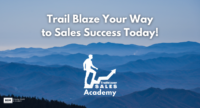
Industry sales experts Candy and Mike Cunningham will lead four in-depth live virtual workshops designed to help members navigate the sales landscape and implement a strategic vision for growth
Business Development Resources (BDR), the training and business coaching authority for home services industry professionals, announces the return of its Trailblazer Sales Academy, an ongoing sales development program specifically for territory managers and distribution sales teams.
Trailblazer Sales Academy helps participants develop sales skills, leadership agility, and a strategic vision for territory growth through four live virtual workshops with additional tools and resources for continuing learning. The program is led by BDR trainers Candy Cunningham and Mike Cunningham and is based on their combined four-plus decades of experience as top-performing territory managers.
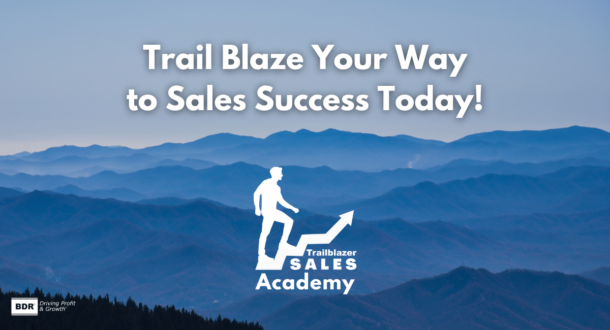
“We’re preparing territory managers and distribution sales teams to blaze their own trails and make their dream territories a reality,” said Matt MacArthur, Senior Vice President of Training and Marketing for BDR. “Trailblazer Sales Academy equips members with all the tools they need to build and implement the strategies and processes that will help them reach their goals by taking ownership of their sales results.”
Trailblazer Sales Academy kicks off in January 2025 and runs through May. Each four-hour training session teaches participants the best practices for top-performing territory managers. Sessions for the academy include:
- Drive Sales and Help Dealers Win in Q1 (Jan. 7): Discover how to drive first-quarter results and help your dealers check pricing and costs to ensure they are well-positioned for the year.
- Build Your Strategic Sales Call Process (Feb. 11): Learn how to build a checklist to prepare for a sales call and develop a strategic sales process to follow before, during, and afterward.
- Find the Right Dealer Through Targeted Prospecting (April 3): Learn the knowledge and skills to effectively identify and engage with high-potential prospects to maximize your results.
- Help Dealers Install More Jobs Through Labor Leverage (May 8): Discover proven methods for helping dealers install more jobs through leveraging labor and optimizing their workforce effectively.
The academy also includes self-paced courses to help participants continue to develop their skills in between the live sessions, along with targeted podcasts episodes to prepare academy members for their next workshop.
Learn more about the Trailblazer Sales Academy at https://www.bdrco.com/trailblazer-academy/.

The global business training, coaching and implementation organization will be on hand at the annual event to discuss growth strategies for the home service industry Sept. 26, 2024 – CEO Warrior, a global business training, coaching and implementation organization for service business owners, will be on hand to discuss innovative growth strategies for the home service Read more
The global business training, coaching and implementation organization will be on hand at the annual event to discuss growth strategies for the home service industry
Sept. 26, 2024 – CEO Warrior, a global business training, coaching and implementation organization for service business owners, will be on hand to discuss innovative growth strategies for the home service industry at the Plumbing-Heating-Cooling Contractors National Association (PHCC) CONNECT 2024 conference in Birmingham, Alabama, Oct. 7-10. CEO Warrior will be at Booth No. 705 during the event.
“As leaders in instruction and continuous education in the skilled trades space, PHCC CONNECT is a must-attend event,” said CEO Warrior CEO Scott August. “This show attracts the best and brightest in the trades service sector. It also caters to leaders in these organizations who make the decisions on how to spend their training dollars. CEO Warrior’s value-added advantage is that we not only help leaders overcome the obstacles they face when trying to grow and scale their companies, but we also understand the skilled trades industry.”
August said most of CEO Warrior’s coaches and mentors came up through the residential and commercial service industry and have real-world experience. CEO Warrior Director of Sales and Marketing Sandy Papavero, Director of Business Development Caroline Moriarty and Director of Advisement Jason Noel, who each have more than 10 years’ experience helping business leaders, will be at the booth to answer questions.
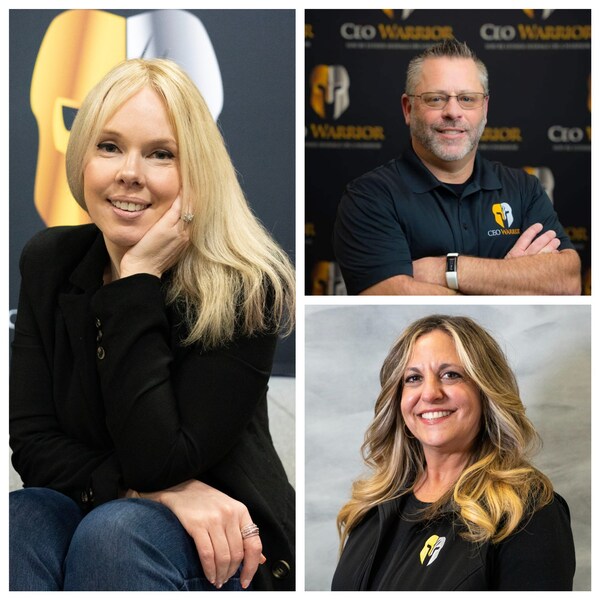
CEO Warrior advisors Caroline Moriarty, Jason Noel and Sandy Papavero, clockwise from left, will be at Booth No. 705 at PHCC CONNECT 2024 Oct. 7-10 in Birmingham, Alabama, to discuss the importance of ongoing training and mentorship.
“Our advisors have built and managed successful home service companies and know this market and what it takes to compete in it,” August said. “As this conference shows, effective training is the cornerstone of any thriving home service business. At CEO Warrior, we believe that ongoing training not only helps employees improve in their roles, it also instills a mindset of continuous improvement and customer-centric service.”
CEO Warrior not only provides training and mentoring for business leaders in the home service and skilled trades industries, the company has also developed a partnership program with some of the industry’s leading product providers and service leaders to provide innovative products and meaningful knowledge to its members.
PHCC CONNECT 2024 is an annual conference hosted by PHCC, a national trade organization for plumbing and HVAC contractors and technicians and has more than 3,500 plumbing and HVACR open shop and union businesses and 65,000 technicians. Approximately 125 state and local association affiliates are part of PHCC’s chapter network.
This year’s PHCC CONNECT 2024 conference, held at the Birmingham-Jefferson Convention Complex, will feature more than 20 educational sessions covering topics like finance, business management, legislation, regulatory issues, influencer marketing, sales and marketing strategies, and the latest in artificial intelligence (AI) technology.
For more information about CEO Warrior and the training sessions offered to those in the home service industry, visit https://ceowarrior.com/.
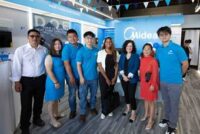
Fourth New York City Location Highlights Midea’s Commitment to Industry Training and Consumer Education Midea, the world’s leading air treatment brand, has opened its first showroom in Brooklyn, marking its fourth showroom in New York City and the latest in Midea’s strategic expansion to propagate the education and adoption of heat pump technology among consumers Read more
Fourth New York City Location Highlights Midea’s Commitment to Industry Training and Consumer Education
Midea, the world’s leading air treatment brand, has opened its first showroom in Brooklyn, marking its fourth showroom in New York City and the latest in Midea’s strategic expansion to propagate the education and adoption of heat pump technology among consumers and industry professionals across the United States.
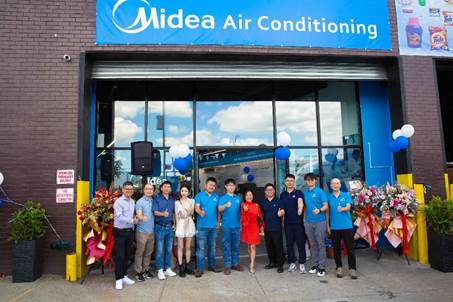
The grand opening event was graced by notable attendees including Dina Rabiner, VP of Economic Development and Strategic Partnerships at the Brooklyn Chamber of Commerce, and Yeraida Medrano, ICF/Con Edison Senior Account Manager, who shared their insights on Midea’s role in advancing sustainable HVAC solutions. The new showroom is operated by WOTEC HVAC Inc. and located at 1150 Metropolitan Avenue.
Midea’s showrooms go beyond traditional sales spaces by offering a unique educational experience tailored to both industry professionals and consumers. These showrooms serve as interactive environments where visitors can explore the practical applications of Midea’s advanced heat pump technologies. Each location showcases a range of heat pump solutions, including Cold Climate Heat Pumps, Packaged Window Heat Pumps, EVOX ducted systems, multi-zone heat pumps and domestic water heating systems, making it an ideal setting for gaining firsthand knowledge about heat pump innovations.
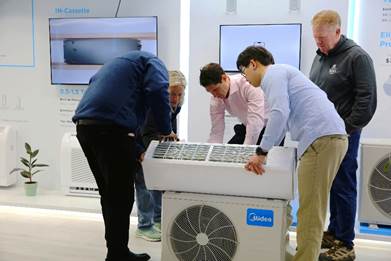
The showrooms are also dedicated to fostering technical expertise within the HVAC industry by hosting weekly training sessions for contractors and installers as well as installation demos and product consultations. The flagship Queens showroom is a designated site for Con Edison’s ongoing education programs that provide training courses on the standards for decommissioning old HVAC systems and the requirements for Con Edison incentives. Midea was also chosen to be the designated brand used for instruction at The Electrical and HVAC/R Training Center, the largest professional training school in New York.
Kai-Ki Wong, formerly the assistant chief plan examiner at the New York City Department of Buildings, and now a consultant working in the showrooms, emphasized the value these showrooms offer: “At our Queens showroom, we’ve brought together a team of experts to provide comprehensive consultations to both industry professionals and consumers. My role is to be the guide on HVAC system design and ensure that installations meet New York’s building codes. Midea’s showrooms are not only about showcasing products but also about empowering visitors with the knowledge and resources they need to make informed decisions about the most innovative heating and cooling solutions available.”
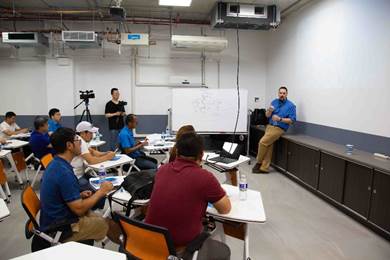
By October, Midea plans to have opened nine showrooms across New York and Chicago. Contractors and companies interested in becoming a Midea heat pump distributor, or consumers interested in upgrading to innovative Midea heating and cooling solutions, should call 1-888-MIDEA NA (1-888-643-3262).
For more information about Midea’s products and the new Brooklyn showroom, visit www.mideacomfort.us.

Taco Comfort Solutions is pleased to announce the appointment of Tony Furst as its newest Commercial Trainer. With over 40 years of distinguished experience in mechanical engineering and a comprehensive background in overseeing multimillion-dollar projects, Tony brings a wealth of knowledge and expertise to the Taco team. Tony’s career spans significant roles across renowned organizations Read more
 Taco Comfort Solutions is pleased to announce the appointment of Tony Furst as its newest Commercial Trainer. With over 40 years of distinguished experience in mechanical engineering and a comprehensive background in overseeing multimillion-dollar projects, Tony brings a wealth of knowledge and expertise to the Taco team.
Taco Comfort Solutions is pleased to announce the appointment of Tony Furst as its newest Commercial Trainer. With over 40 years of distinguished experience in mechanical engineering and a comprehensive background in overseeing multimillion-dollar projects, Tony brings a wealth of knowledge and expertise to the Taco team.
Tony’s career spans significant roles across renowned organizations within the HVAC industry, including Armstrong Fluid Technology, where he served as the US Director of Application Engineering. His responsibilities included providing extensive application engineering support and developing technical education content for commercial HVAC systems. Tony’s commitment to excellence and innovation has consistently resulted in the successful completion of projects on time and within budget.
“We are thrilled to welcome Tony to Taco Comfort Solutions,” said Cheryl Merchant, CEO of Taco Family of Companies. “His deep understanding of mechanical systems and his passion for educating others will be invaluable as we continue to enhance our training programs for the commercial sector,” added Merchant.
Tony holds a BS in Mechanical Engineering from the University of Dayton and an MS in Education from Michigan State University. He is certified in Plumbing Design by the American Society of Plumbing Engineering (ASPE) and is a LEED Accredited Professional with the US Green Building Council. Throughout his career, Tony has been a dedicated member of ASPE and ASHRAE, contributing significantly to technical education committees and serving as a speaker at various industry events.
“I truly enjoy sharing knowledge with others to make modern hydronic systems better,” said Furst. His commitment to advancing industry standards aligns perfectly with Taco Comfort Solutions’ mission to provide innovative and efficient solutions for HVAC systems.
In his new role at Taco, Tony will join a team of esteemed trainers, including Brett Zerba and Rich Medairos, enhancing the company’s capability to deliver comprehensive training programs tailored to the needs of commercial clients.
“It’s rare when you get the opportunity to add someone with Tony’s background, experience, and knowledge to your team,” said John Barba, Director of Training at Taco Comfort Solutions. “Adding Tony to our commercial training team is like having three Hall of Famers in your outfield. I’m looking forward to seeing Tony, Brett, and Rich share their wit, wisdom, and knowledge with our industry,” concluded Barba.
Furst’s appointment marks a significant addition to Taco Comfort Solutions, reinforcing its commitment to excellence in commercial HVAC training and education.
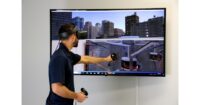
Empowering Organizations to Simplify, Scale and Succeed, Interplay Enterprise, an all-in-one career development platform, marks the next chapter in immersive training and talent development Interplay Learning, the leading provider of immersive skilled trades training, announced today the launch of Interplay Enterprise. Shaped by customer insights, this immersive career development platform introduces exciting new features designed Read more
Empowering Organizations to Simplify, Scale and Succeed, Interplay Enterprise, an all-in-one career development platform, marks the next chapter in immersive training and talent development
Interplay Learning, the leading provider of immersive skilled trades training, announced today the launch of Interplay Enterprise. Shaped by customer insights, this immersive career development platform introduces exciting new features designed to help enterprises elevate the skills of their entire workforce, streamline operations, and improve retention.

Interplay Enterprise simplifies career development by providing an all-in-one platform for company-wide learning. It includes nearly 500 hours of on-demand skilled trades courses, industry certification prep courses, learning paths, and 3D/VR simulations crafted by industry experts. A new content manager tool makes it easy for trainers and administrators to include additional courses about topics like leadership, management, compliance, ethics, and more by uploading SCORM-compliant course packages, videos, and documents. They can also use the content manager to build content, quizzes, and custom learning paths tailored to the diverse training needs of their workforce, while also managing and tracking in-person classroom training–all in one place.
Comprehensive management tools give enterprises the ability to scale and facilitate training across multiple locations and job roles. Administrators can streamline onboarding and user management with 60+ pre-built HR systems integrations and automated assignments for courses, paths, and due dates. Interplay also provides a suite of measurement, reporting, and AI-based recommendation tools, including skills assessments and insights dashboards. These empower leaders to add value with actionable insights to optimize training performance and help learners build the safety and accuracy skills they need to get to the next level.
“The latest evolution of our industry-leading solution allows organizations to simplify career development, scale their training, and succeed in building a strong, skilled workforce,” said Doug Donovan, CEO and founder of Interplay Learning. “With Interplay Enterprise, companies can provide safe, effective online training for all employees in one centralized learning space. They are not only able to apply Interplay’s proven trades training content, but they can also manage, track, upload, and create their own training — all within our career development platform. Our Enterprise customers can also count on our partnership through every step of their employees’ journey within our platform.”
“Interplay’s all-in-one platform allows us to track progress, identify areas for improvement, and provide scaffolded support to meet techs where they are to help them succeed,” said Andrew Hasty, director of learning and development, Peterman Brothers Heating, Cooling & Plumbing. “We’re strategically aligning Interplay’s platform to our paths of progression and career development initiatives. Our goal is to identify learning gaps and provide targeted interventions that support each technician’s unique journey.”
Interplay’s career development platform also offers:
- Immersive learning experiences: Learners experience VR and simulation-based training in a safe, immersive environment, enhancing knowledge retention, engagement, and skill-building.
- Ready-made, enterprise-grade solutions: A scalable cloud-based platform provides secure access anytime, anywhere, with user-friendly functionality.
- Reporting API: Powerful data from Interplay’s career development platform can be integrated into other software systems for additional analysis and reporting.
- Customizable platform: Deliver the platform with your own brand logos and colors, and customize learning paths to include your company’s values, employer strategy, and ways of working.
- Convenience and compatibility: Interplay Enterprise delivers flexibility and mobile compatibility to maximize accessibility for on-the-go workers.
- World-class enterprise service and support: Interplay Learning is a strategic partner for career development consulting, implementation, insights, and U.S.-based support.
The Interplay Enterprise career development platform is now generally available–some of the mentioned new features and capabilities will be released in the Summer and Fall of 2024. For more information about Interplay Enterprise, visit www.interplaylearning.com/enterprise.
